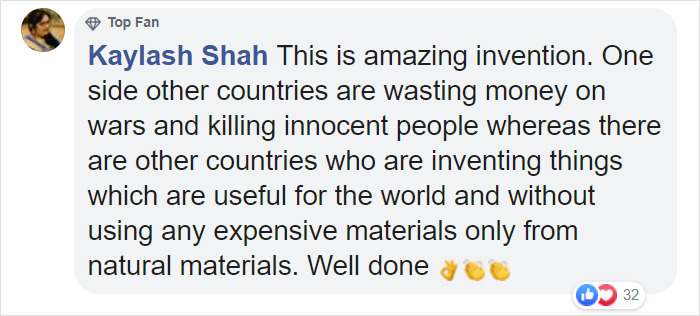
This Solar Power Plant In Kenya Turns Ocean Water Into Drinking Water
Most of us are used to simply opening the tap and getting a glass of water when we get thirsty – but not everyone on the planet has such easy access to drinking water. In fact, about 2.2 billion people around the globe don’t have everyday access to drinking water. A non-government organization called GivePower is trying to help those in need by installing solar power plants in developing countries and has recently built a solar-powered plant in Kenya that cleans ocean water, providing drinking water to 25,000 people!
More info: Give Power
GivePower recently built a solar-powered water purification plant in Kenya

Image credits: GivePower
GivePower has already built solar power plants in countries like Haiti, Nicaragua, Nepal, and Puerto Rico before but it’s the first time they’ve built a purification plant. It was built in the small Kenyan town of Kiunga back in August.
The plant provides drinking water for 25,000 people

Image credits: GivePower
Seeing the project’s success, GivePower plans to build similar plants in Colombia and Haiti in the future.
The plant has the capacity to supply up to 35,000 people with fresh drinking water

Image credits: GivePower
The most important process in turning ocean water into drinking water is desalination – the removal of salt. It’s a very expensive and power-consuming process, therefore solar power seems to be a good long-term solution to this problem. The solar panels produce 50 kilowatts of energy to power 2 water pumps.
A third of Kenyans don’t have access to clean drinking water, meaning this purification plant is essentially life-changing

Image credits: GivePower
The locals used to travel hours just to get some drinking water and had to conserve every last drop – but their problems have finally been solved thanks to GivePower.
No more traveling for hours to get some clean water

Image credits: GivePower
“You see children inside of these villages, and they’ve got these scars on their stomachs or their knees because they got so much salt in their wounds. They were basically poisoning their families with this water,” said Hayes Barnard, president of GivePower. With this new purification plant, the locals will no longer have to poison their bodies by drinking polluted water. Let’s hope we’ll see more of these being built in developing countries in the near future!
People loved the good news
































Got wisdom to pour?
And although the advantages and disadvantages of solar power plants are still discussed in the professional field, in practice it turns out that such an installation is a cost-effective solution. I advise you to learn more about how it works here https://help-center.pissedconsumer.com/how-do-solar-panels-work-brief-guide/
Be sure to consider that the solar panels must be installed correctly to ensure accuracy. Now such a decision can significantly improve many areas of our lives. Thanks to solar energy, you are less dependent on power plants that have an adverse impact on the environment, I advise you to read more about this here https://solarcellzusa.com/